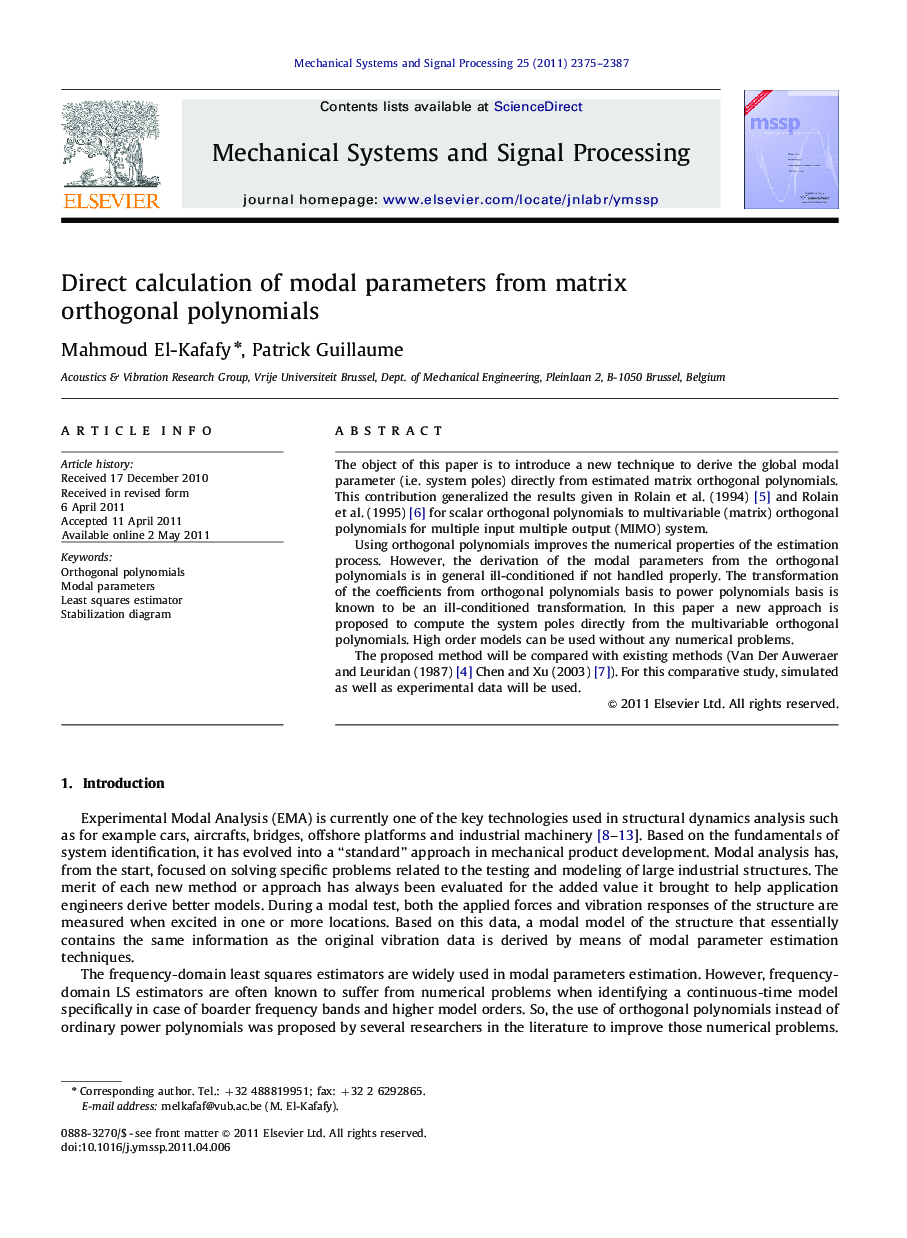| Article ID | Journal | Published Year | Pages | File Type |
|---|---|---|---|---|
| 559537 | Mechanical Systems and Signal Processing | 2011 | 13 Pages |
The object of this paper is to introduce a new technique to derive the global modal parameter (i.e. system poles) directly from estimated matrix orthogonal polynomials. This contribution generalized the results given in Rolain et al. (1994) [5] and Rolain et al. (1995) [6] for scalar orthogonal polynomials to multivariable (matrix) orthogonal polynomials for multiple input multiple output (MIMO) system.Using orthogonal polynomials improves the numerical properties of the estimation process. However, the derivation of the modal parameters from the orthogonal polynomials is in general ill-conditioned if not handled properly. The transformation of the coefficients from orthogonal polynomials basis to power polynomials basis is known to be an ill-conditioned transformation. In this paper a new approach is proposed to compute the system poles directly from the multivariable orthogonal polynomials. High order models can be used without any numerical problems.The proposed method will be compared with existing methods (Van Der Auweraer and Leuridan (1987) [4] Chen and Xu (2003) [7]). For this comparative study, simulated as well as experimental data will be used.
►Using matrix orthogonal polynomials improves the modal parameter estimation process. ► Transformation from orthogonal to power polynomial basis is still an important issue. ► In this article, a new method is proposed to avoid this transformation. ►This method is less sensitive to loss of accuracy even at the higher model orders. ►The new method outperforms the traditional existing methods.
